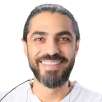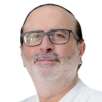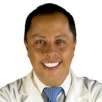Dental Tribune International asked Prof. Miguel Peñarrocha Diago five quickfire questions about his background in dentistry and what inspires him in his day-to-day work. In the interview, Diago also shed some light on his role as become the Editor-in-Chief of the Journal of Oral Science and Rehabilitation (JOSR).
Prof. Peñarrocha Diago, what is your background in dentistry?
I finished my degree in medicine and surgery in 1997, then I specialised in stomatology and later in neurology. I studied orofacial pain for ten years and taught medicine. Later, I started with surgery and oral implantology. For 15 years, I have been Professor of Oral Surgery at the University of Valencia in Spain.
The areas I have worked in throughout my life have been orofacial pain, extraction of impacted teeth, local anaesthesia, periapical surgery and oral implantology. Currently, I am dedicated to the same areas, with a greater focus on periapical surgery (preserving teeth at a time when our profession is tending towards extraction and society does not value natural teeth and overestimates implants) and implantology, especially implants in the case of severe maxillary atrophy and immediate loading.
How did you become the Editor-in-Chief of the JOSR?
The journal came into being thanks to the drive of a group of dental professionals and friends, such as Dr Daniele Botticelli, Prof. Ugo Covani and Dr Luigi Canullo. All of them are dental professionals with significant research and clinical backgrounds and whom I joined to create a new journal that covers the current dental panorama.
What is your favourite part of your role as Editor-In-Chief?
The most interesting part is having the opportunity to read the newest research from groups all over the world. Thanks to Nathalie Schüller, Managing Editor of JOSR, the revision process of the manuscripts is greatly simplified!
What sets JOSR apart from other scientific journals?
JOSR is a great journal with good articles, interesting content, layout of high quality, and high-quality images. The strong point of the journal is that is it completely open access, through Dental Tribune’s website, and free of charge. That is something exceptional. JOSR needs to be indexed in international citation indexes to consolidate its growth and keep improving its scientific relevance. Nowadays, all authors want to publish in journals that are listed in scientific indexes.
What inspires you in your day-to-day work?
I like the combination of daily clinical activity with patients, which is my job as a dentist, with teaching and research at university. Dentistry is a demanding profession. It requires at least ten years of dedication to get to know the basics of what to do and know how to do it. There are many procedures and a lot of information to learn, and one’s professional life passes by in the blink of an eye.
In oral surgery, I strive for excellence every day. I still want to learn, to ensure the best for patients and students, with the idea that if I do something well and pass it on to students, it will spread with much speed, reaching more patients sooner.
The most important professional achievement is having reached a clinical level that allows me to treat my patients with confidence in what I do, and at the teaching level, to have enough resources to be able to teach what the student should know how to do. At the researcher level, I have conducted plenty of clinical research, which has meant that the University of Valencia is well positioned in the international indexes of oral surgery and implantology. This effort has been rewarded by my university with the Chair of Oral Surgery, giving me a job at a personal level that allows me to perform my tasks every day with enthusiasm.
Thank you very much for the interview.
Tags:
Dental Tribune International asked Dr Jorge Vera five quickfire questions about his background in dentistry and what inspires him to practice endodontics ...
BERLIN, Germany: Stephen Jones has been part of the ROOTS SUMMIT right from the beginning and continues to play an important role at this year’s event as ...
Glass hybrid restoratives offer a unique combination of advantages in dentistry. They are biocompatible and require neither the application of bonding ...
HATTERSHEIM AM MAIN, Germany: As a company, Kuraray Noritake Dental is committed not just to creating innovative products, but also to building upon our ...
WOLHUSEN, Switzerland: Last week, Geistlich Pharma announced that Diego Gabathuler is the company’s new CEO. An experienced leader and expert in the ...
After tooth extraction, a series of physiological changes affecting the surrounding alveolar bone take place. This process includes bone formation as well ...
Established in 2006 by Dr Willis Pumphrey, ClearCorrect has grown rapidly to become the second-largest clear aligner manufacturer in the world. The company ...
LONDON, UK: A new article presents a comprehensive overview of the evolving regulatory landscape for custom-made medical devices in the UK, offering ...
LONDON, UK: By providing a sweet taste without the calories and other deleterious side effects of sugar, artificial sweeteners have often been lauded for ...
Vertex-Dental, a leading manufacturer of dental products and materials, was recently acquired by global solutions company 3D Systems. The 2017 International...
Live webinar
Thu. 18 April 2024
11:00 am EST (New York)
Live webinar
Mon. 22 April 2024
10:00 am EST (New York)
Prof. Dr. Erdem Kilic, Prof. Dr. Kerem Kilic
Live webinar
Tue. 23 April 2024
1:00 pm EST (New York)
Live webinar
Wed. 24 April 2024
8:00 am EST (New York)
Dr. Yin Ci Lee BDS (PIDC), MFDS RCS, DClinDent Prosthodontics, Dr. Ghida Lawand BDS, MSc, Dr. Oon Take Yeoh, Dr. Edward Chaoho Chien DDS, DScD
Live webinar
Wed. 24 April 2024
1:00 pm EST (New York)
Live webinar
Thu. 25 April 2024
12:00 pm EST (New York)
Dra. Deborah Martinez LaForest, Dra. Macjorette Larez, Dr. Francisco Castellanos Medina, Dr. Francisco Eraso
Live webinar
Fri. 26 April 2024
12:00 pm EST (New York)



 Austria / Österreich
Austria / Österreich
 Bosnia and Herzegovina / Босна и Херцеговина
Bosnia and Herzegovina / Босна и Херцеговина
 Bulgaria / България
Bulgaria / България
 Croatia / Hrvatska
Croatia / Hrvatska
 Czech Republic & Slovakia / Česká republika & Slovensko
Czech Republic & Slovakia / Česká republika & Slovensko
 Finland / Suomi
Finland / Suomi
 France / France
France / France
 Germany / Deutschland
Germany / Deutschland
 Greece / ΕΛΛΑΔΑ
Greece / ΕΛΛΑΔΑ
 Italy / Italia
Italy / Italia
 Netherlands / Nederland
Netherlands / Nederland
 Nordic / Nordic
Nordic / Nordic
 Poland / Polska
Poland / Polska
 Portugal / Portugal
Portugal / Portugal
 Romania & Moldova / România & Moldova
Romania & Moldova / România & Moldova
 Slovenia / Slovenija
Slovenia / Slovenija
 Serbia & Montenegro / Србија и Црна Гора
Serbia & Montenegro / Србија и Црна Гора
 Spain / España
Spain / España
 Switzerland / Schweiz
Switzerland / Schweiz
 Turkey / Türkiye
Turkey / Türkiye
 UK & Ireland / UK & Ireland
UK & Ireland / UK & Ireland
 Brazil / Brasil
Brazil / Brasil
 Canada / Canada
Canada / Canada
 Latin America / Latinoamérica
Latin America / Latinoamérica
 USA / USA
USA / USA
 China / 中国
China / 中国
 India / भारत गणराज्य
India / भारत गणराज्य
 Japan / 日本
Japan / 日本
 Pakistan / Pākistān
Pakistan / Pākistān
 Vietnam / Việt Nam
Vietnam / Việt Nam
 ASEAN / ASEAN
ASEAN / ASEAN
 Israel / מְדִינַת יִשְׂרָאֵל
Israel / מְדִינַת יִשְׂרָאֵל
 Algeria, Morocco & Tunisia / الجزائر والمغرب وتونس
Algeria, Morocco & Tunisia / الجزائر والمغرب وتونس
 Middle East / Middle East
Middle East / Middle East
:sharpen(level=0):output(format=jpeg)/up/dt/2024/04/Asia-is-booming-and-Europe-is-lagging-behind.jpg)
:sharpen(level=0):output(format=jpeg)/up/dt/2024/04/Shutterstock_1762644056.jpg)
:sharpen(level=0):output(format=jpeg)/up/dt/2024/04/Entries-open-for-SMILE-Health-dental-start-up-accelerator-programme.jpg)
:sharpen(level=0):output(format=jpeg)/up/dt/2024/04/oral-health-awareness-is-generally-low-in-singapore.jpg)
:sharpen(level=0):output(format=jpeg)/up/dt/2024/04/New-Align-Technology-Campus-to-elevate-the-standard-of-care-in-dentistry-1.jpg)











:sharpen(level=0):output(format=png)/up/dt/2022/01/Sprintray_Logo_2506x700.png)
:sharpen(level=0):output(format=png)/up/dt/2011/11/ITI-LOGO.png)
:sharpen(level=0):output(format=png)/up/dt/2013/01/Amann-Girrbach_Logo_SZ_RGB_neg.png)
:sharpen(level=0):output(format=png)/up/dt/2022/01/HASSBIO_Logo_horizontal.png)
:sharpen(level=0):output(format=png)/up/dt/2014/02/FKG.png)
:sharpen(level=0):output(format=png)/up/dt/2010/11/Nobel-Biocare-Logo-2019.png)
:sharpen(level=0):output(format=jpeg)/up/dt/2019/03/Prof-Miguel-Penarrocha_780-x-439.jpg)

:sharpen(level=0):output(format=jpeg)/up/dt/2024/04/Asia-is-booming-and-Europe-is-lagging-behind.jpg)
:sharpen(level=0):output(format=gif)/wp-content/themes/dt/images/dt-user.gif)
:sharpen(level=0):output(format=jpeg)/up/dt/2019/02/Five-quick-questions-with-Dr-Jorge-Vera_mm_780x439.jpg)
:sharpen(level=0):output(format=jpeg)/up/dt/2018/06/image003.jpg)
:sharpen(level=0):output(format=jpeg)/up/dt/2022/02/Marcano_The-stamp-technique_title.jpg)
:sharpen(level=0):output(format=jpeg)/up/dt/2019/09/CUBQ.jpg)
:sharpen(level=0):output(format=jpeg)/up/dt/2023/12/Diego-Gabathuler.jpg)
:sharpen(level=0):output(format=jpeg)/up/dt/2020/07/Four-questions-on-Straumann-biomaterials-1.jpg)
:sharpen(level=0):output(format=jpeg)/up/dt/2017/04/aligners-ortho.jpg)
:sharpen(level=0):output(format=jpeg)/up/dt/2024/02/A-new-overview-answers-top-questions-about-UK-regulations-for-custom-made-dental-devices.jpg)
:sharpen(level=0):output(format=jpeg)/up/dt/2019/02/shutterstock_175095215.jpg)
:sharpen(level=0):output(format=jpeg)/up/dt/2017/04/3d-systems-at-IDS.jpeg)







:sharpen(level=0):output(format=jpeg)/up/dt/2024/04/Asia-is-booming-and-Europe-is-lagging-behind.jpg)
:sharpen(level=0):output(format=jpeg)/up/dt/2024/04/Shutterstock_1762644056.jpg)
:sharpen(level=0):output(format=jpeg)/up/dt/2024/04/Entries-open-for-SMILE-Health-dental-start-up-accelerator-programme.jpg)
:sharpen(level=0):output(format=jpeg)/wp-content/themes/dt/images/3dprinting-banner.jpg)
:sharpen(level=0):output(format=jpeg)/wp-content/themes/dt/images/aligners-banner.jpg)
:sharpen(level=0):output(format=jpeg)/wp-content/themes/dt/images/covid-banner.jpg)
:sharpen(level=0):output(format=jpeg)/wp-content/themes/dt/images/roots-banner-2024.jpg)
To post a reply please login or register